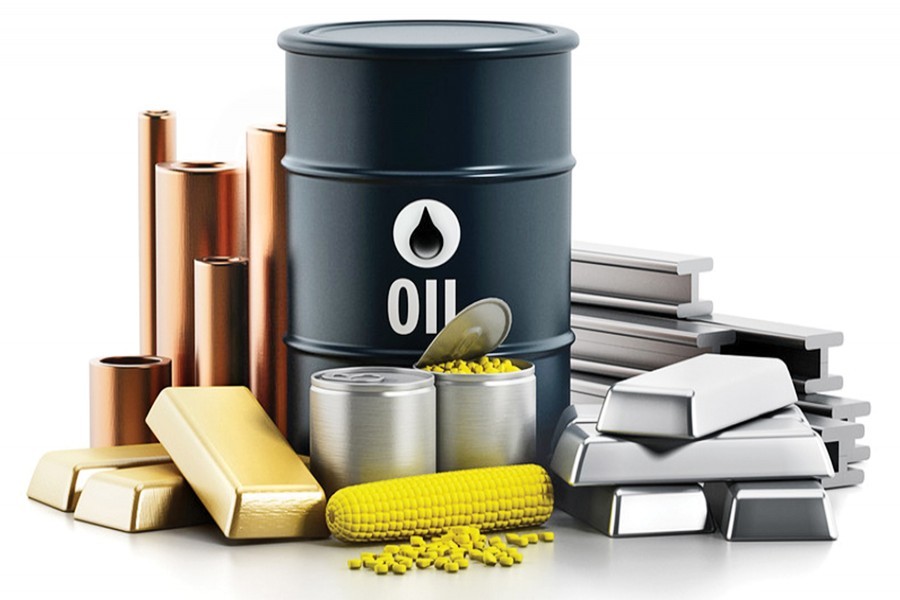The rate of 'expected inflation' is predicted to rise this fiscal year driven by higher global commodity prices and exchange rate movement, the central bank has said.
The Bangladesh Bank, which prepares 'expected inflation,' data show the average inflation will reach between 6.0 and 7.0 per cent in the fiscal year, 2018-19.
This shows an increase, compared with the government estimates of 5.6 per cent for the fiscal year 2019.
Expected inflation means investors' and public expectations of the current or future inflation.
People familiar with the matter at the central bank told the FE the inter-bank Taka-dollar exchange rate advanced by nearly 4.0 per cent over the past one year ending in August.
They also said the exchange rate may depreciate further ahead as both export receipts and remittance inflow remained lower than expectations.
On the other hand, global commodity prices have increased this year, supported by both demand and supply factors, according to a document published by the BB.
However, the World Bank forecast the energy prices would soar by 19 per cent this year, led by oil and natural gas.
This is due to strong oil demand and production cut in the OPEC and non-OPEC producers, rising geopolitical concerns have bolstered oil prices.
And non-energy commodity prices are projected to increase by 3.6 per cent and agricultural prices by 2.3 per cent largely due to the supply shock in the United States.
The World Bank's market prices show that crude oil brent increased to 73.13 a barrel in August, nearly $ 9.0 up from December 2017, rice rose by $2.0 a tonne to $ 391 and wheat rose by $45 to $ 217 a tonne.
But soyabean oil fell by $113 a tonne to $ 653 a tonne in August.
In the meantime, economists view that the inflationary expectation will rise this year not only because of higher global commodity prices but also possible higher spending during the election period.
Dr Zahid Hussain, lead economist at the Dhaka office of the World Bank, told the FE that that both public and private spending will rise as election year's spending remains high.
"In my view, this will impact the inflationary expectations," Dr Hussain said.
He said export receipts and remittance inflow remain low and this will impact on the exchange rates.
"The central bank may depreciate local currency in future and this will make import costlier," Dr Hussain said.
He said the prices of fuel in the international market are expected to rise.
"This is expected to rise following tightening of US sanctions on Iran," he said.
On the other hand, Dr MA Taslim, a professor of economics at Dhaka University, told the FE that this is just peoples' expectations and some 1200 samples are quite large to be representative of the survey.
He said it is hard to say which inflation is better between the observed inflations by the BBS and the expected inflation by the BB.
Dr Taslim also said there is a need for regular publication of the data as these are much important for many calculations.
"The businesses also prepare their own expected inflations," he said.
"To my mind, the Bangladesh Bank should publish it on a regular basis," Dr Taslim added.
Bangladesh Bank has been preparing such expected inflation over the past five years.
It prepares it through a survey of 1200 samples consisting of academics, business people, researchers, bankers and other important people of the society.
This expectation may or may not be rational, but this may affect how the market reacts to changes in the targeted interest rates.
However, such type of inflation is required for businesses, investors, researchers and analysts.
A senior Bangladesh Bank official involved with the preparations told the FE that the inflations mostly reflect 'headline' inflation or food inflation as the questionnaire gives emphasis on the commodities having volatility.
He said respondents consider the global perspectives and domestic matters while responding to the survey.
Tasruma Sharmeen Chowdhury, a faculty at the Bangladesh Institute of Capital Market, the country's lone capital market institute, told the FE that her institution also needs such data for the calculation of expected returns of the stocks.


